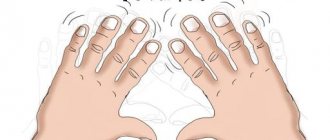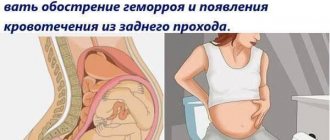Belching is an unpleasant phenomenon of contraction of the diaphragm, which causes an involuntary release of air from the stomach or alimentary tract through the mouth. The air comes out along with food and liquid. In adults, it is considered normal if air is swallowed in an amount of no more than 3 ml for each swallowing movement. This amount of gas helps the normal functioning of the stomach. With properly created pressure in the stomach, excess air comes out in small, odorless portions, unnoticed by humans and others.
If too much oxygen has penetrated into the stomach, the excess air component leaves the esophagus with a characteristic sound, from food and water. It is accompanied by an unpleasant odor and pain; as a rule, after belching the person feels better. If it is unpleasant, strong and loud and constantly pursues you, accompanied by a feeling of heaviness and fullness, it’s time to think about the reasons for its appearance. Continuous belching may be a symptom of a serious illness.
Causes of belching
To find out the cause of belching, you should know the principle of functioning of the digestive tract. The path of food is as follows: first it enters the esophagus, then into the stomach. If there is a large amount of it, then some of the air leaves the stomach. This is not a pathological condition, but normal functioning of the gastrointestinal tract, so belching air after a heavy meal is not a sign of the disease.
Content:
- Causes of belching
- Why does burping have a different smell and taste?
- Symptoms of the disease
- Diagnosis of belching
- Treatment of pathology
Sometimes the reaction appears after heavy physical activity, when the contents of the stomach are displaced and some of the excess air comes out. This phenomenon occurs when wearing a tight belt or tight clothing. In this case, the stomach cannot expand, and air escapes (this happens mainly with overweight people, but it is still affected by food consumption). In the conditions described above, belching occurs rarely (but in some it occurs quite often and it is quite difficult to identify the cause). Belching is a common occurrence for late-term pregnant women (this is not a pathology, but a natural process, since the enlarged uterus puts pressure on the organs).
A completely different situation arises with morning belching before meals, since there are no natural reasons for this, because the stomach is empty. In this case, a person should pay attention to this. Even more concern should arise when rotten belching appears, or the oral cavity is filled with sour or bitter contents. If this occurs quite often, then you need to seek help from a specialist, because this symptom indicates the development of diseases of the gastrointestinal tract.
Belching may be caused by other factors, such as poor diet or food intake. It happens that a person swallows air. This happens when he eats quickly, while swallowing large, unchewed pieces. Swallowing air occurs when talking while eating, chewing gum, smoking, taking deep breaths, and during frequent inhalations during the treatment of respiratory pathologies. During these actions, there is a large accumulation of air in the stomach, which begins to flow back out.
In addition, carbonated drinks may be the cause, since they contain a lot of carbon dioxide (once it gets into the stomach, it will try to come out). Gases accumulate in the stomach after drinking legumes, fatty, strong tea and coffee, onions and garlic. To eliminate belching, you need to remove these components from your diet. But it should be noted that a pronounced process in rare cases is an independent manifestation.
In adults, this phenomenon often occurs in parallel with other unpleasant conditions, for example: heartburn, heaviness in the abdomen, nausea, stomach pain.
Then we can assume that the person has diseases of the stomach and intestines, namely:
- gastritis;
- ulcer;
- pancreatitis;
- cholecystitis;
- traumatic and burn injuries of the esophagus and stomach;
- neoplasm.
Treatment methods
To eliminate such an unpleasant symptom, it is necessary, first of all, to find out its cause. This should be done by a qualified doctor.
However, there is a set of measures that will help minimize unpleasant manifestations.
- Eat often and in small portions. Slowly, chewing thoroughly. Avoid snacking on the go and during dry periods.
- Eliminate foods that cause increased gas formation from your diet.
If burping occurs quite often, is accompanied by pain and unpleasant odors, this is a reason to immediately consult a specialist. Timely detection of a disorder is the key to successful treatment!
This article has been verified by a current qualified physician, Victoria Druzhikina, and can be considered a reliable source of information for site users.
Rate how helpful this article was
4.1 9 people voted, average rating 4.1
Did you like the article? Save it to your wall so you don’t lose it!
Why does burping have a different smell and taste?
Belching can be sour, bitter and have a pronounced rotten odor. Acid appears when stomach acid enters the esophagus. This is a common symptom of pathologies such as stomach ulcers and gastritis. Bitterness indicates the presence of bile, when it alternately enters all parts of the gastrointestinal tract. This can happen with pancreatitis, and cholecystitis also has a particular effect on this condition.
The most unpleasant symptom is belching with a putrid odor. If it occurs frequently, we should talk about poor functioning of the organ (a rotten smell appears due to hydrogen sulfide and various bacteria). This indicates that the acidity of the gastric juice is reduced there, because if everything were normal, the bacteria simply would not be able to survive.
This cause appears in various pathologies (for example, atrophic gastritis), is characterized by the death of tissue of the gastric mucosa, and a reduction in the volume of glands that produce juice.
general characteristics
Belching is perceived as a sudden entry of gastric contents into the oral cavity with the appearance of a characteristic sound.
Most people have a slightly open mouth when belching and sometimes a feeling of constriction in the epigastrium. Belched gases usually have a neutral taste and odor, except when eating strong-smelling foods and drinks (garlic, onions, alcohol). When liquids are erected, a sour taste of varying intensity often appears; bitter or putrid contents are less commonly regurgitated. Eructation is more often observed after eating or drinking, especially after eating foods that promote gas formation. Sometimes belching is preceded by heaviness, distension in the epigastric region, with relief after the release of air or liquid chyme. Normally, the symptom occurs up to 15-30 times a day. If it appears more frequently, a predominance of a liquid component with an intense sour, bitter or putrid taste in the regurgitated contents, or a combination of belching with hiccups, nausea, vomiting, or abdominal pain, it is recommended to visit a gastroenterologist.
Symptoms of the disease
It is already known that the appearance of belching is affected by many diseases of the stomach and intestines. They, in turn, have certain symptoms that can occur in parallel with belching.
- Gastroesophageal reflux pathology: this is the most common cause of air escaping from the stomach. Appears during changes in body position. In addition to belching, there are: chest pain, nausea and vomiting, rapid saturation of the stomach, cough, shortness of breath. The development of this condition is preceded by the following factors: overeating, smoking, use of medications, inactivity. This disease can trigger the development of ulcers or erosion of the esophagus.
- Gastritis: characterized by inflammatory processes in the gastric mucosa. Signs of pathology are not only belching, but also: nausea, pain, bouts of vomiting, heaviness in the stomach. If gastritis has an atrophic form, putrefactive belching appears against the background of rapid satiety. The skin becomes pale and nails become brittle. With non-atrophic gastritis, sour belching occurs.
- Stomach ulcer: in addition to belching, it is manifested by pain, nausea, constipation and refusal to eat. Very similar to the symptoms of gastritis, so you need to be extremely careful during diagnosis.
- Stomach cancer: this is a progressive and rapidly developing pathology, the symptoms of which are very similar to gastritis. Main symptoms: low appetite, rapid satiety, sudden weight loss, heaviness.
- Pathology of the esophagus: diseases of this part of the digestive organs provoke the appearance of belching. Signs that the esophagus has pathologies are: a feeling of a lump in the throat, difficulty swallowing, chest pain, sudden weight loss, heartburn. If the disease develops, inflammatory processes will appear. Irreversible changes will occur in it, which will cause a lot of discomfort while eating.
- Supragastric belching: a form of belching in which air comes out only from the esophagus. A person can control and call it independently. When a patient complains about this reaction of the body, it should be assumed that he does not control his actions and needs the help of a psychotherapist.
Pathologies of the diaphragm
A hiatal hernia can cause persistent and frequent belching, including air.
- The risks of this pathology increase with age, as the muscle fibers and ligaments of the diaphragm weaken, intra-abdominal pressure increases due to overeating, obesity or excessive physical activity.
- This pathology is also typical for patients with obstructive pulmonary diseases (chronic bronchitis, bronchial asthma).
- However, congenital hernias also occur as a consequence of an embryonic defect of the esophagus (its shortening).
With different types of hernias, through an abnormally wide esophageal opening in the diaphragm, different parts of the stomach and the abdominal part of the esophagus can penetrate into the chest cavity and either temporarily or permanently reside in the chest cavity. This leads to pain behind the sternum, which can radiate to the back in the interscapular region. Rhythm disturbances such as extrasystole are also characteristic (in a third of patients). Belching with air and throwing food into the oral cavity is very typical (especially in a lying position). You may experience heartburn or a bitter taste in your mouth. Regurgitation or vomiting occurs without prior nausea and is provoked by hasty eating or a change in body position.
Diagnosis of belching
If burping occurs too often, it is a sign of illness. To identify the cause of this condition, you should consult a gastroenterologist. He will order an examination that will indicate the cause. The following research methods will be assigned:
- X-ray using a contrast agent;
- endoscopy (examination of the mucous membrane of the stomach, esophagus and duodenum);
- pH-metry (determining the level of acidity in various parts of the gastrointestinal tract);
- ultrasound examination of the gallbladder and pancreas;
- computed and magnetic resonance imaging.
In addition, laboratory blood tests are performed to determine inflammatory processes in the digestive organs, as well as to identify anemia that occurs with certain pathologies. Analysis of feces will indicate poor functioning of the digestive organs and detect pathogens of infectious diseases.
In addition, the doctor will collect the patient’s medical history - this will help clarify all diseases and find out about the food the patient eats. A visual examination will identify the painful area and the area of abdominal distension.
From the above it is clear that there are quite a lot of different diseases that cause belching, and many of them have the same symptoms. The effectiveness of therapy will depend on the correct diagnosis. You should not delay in diagnosing the reason why air comes out of the stomach too often, because belching can be a symptom of a malignant neoplasm.
How to treat?
There are no specialized anti-belching remedies. However, patients are often prescribed medications from the group of prokinetics: they regulate gastrointestinal motility, stimulate correct, timely contraction of sphincters, and accelerate the evacuation of food from the stomach. Thanks to this, heaviness disappears and episodes of belching decrease.
If the cause of belching is an organic disease, it must be treated. And of course, most people who often burp should be careful when choosing a menu. It is worth excluding foods that cause increased gas formation and fermentation: all types of cabbage, all legumes, bell peppers, black bread, grapes.
Culinary preferences
Each product has its own effect on a person’s well-being. On the way food enters the body, the gastrointestinal tract is the very first system. Therefore, health itself often depends on well-chosen products.
Culinary addictions largely determine the appearance of the disorder after eating. We are talking about the following products:
- Overly spicy food. Such food promotes increased production of gastric juice, the excess of which the body cannot use. As a result, contraction of the muscles of this organ and the initial part of the small intestine occurs. The consequence of these changes is belching.
- Sweet drinks. Gas in lemonades and plain water promotes additional air intake into the digestive system. Through normal belching, the body tries to get rid of its excess on its own.
- Chewing gum.
- Fruits and vegetables. In this situation, we are talking about eating healthy foods immediately after eating. Vegetables and fruits promote the secretion of gastric juice. As a result, as in the first case, the body cannot cope with its excess on its own, causing rumbling. This symptom is not always a manifestation of the normal functioning of the digestive system.
You can get rid of the unpleasant feeling after eating if you slightly adjust your usual diet. First of all, it is necessary to exclude carbonated water and sugary drinks from it. It is better to eat raw vegetables and fruits 30 minutes before the main meal. Chewing gum lovers should avoid it. Under no circumstances should overeating be allowed. Nutritionists recommend leaving the table a little hungry. Then discomfort after eating will not bother you.
Drug therapy
The main therapeutic drugs for severe belching of air are gastric enzymes. Among them, the following products are characterized by the greatest effectiveness: “Creon”, “Mezim”, “Pancreatin”. These medications must be taken in doses and only for a certain time. You should not abuse them, as many are addictive.
Help from traditional medicine
Traditional healers have their own approach to combating belching. For example, they recommend periodically using a soda solution. To prepare it, you will need to dilute a teaspoon of the substance in a glass of warm water and drink it. However, this remedy is not recommended for those people who have already been diagnosed with gastritis and other similar health problems.
Clove oil is considered an equally effective remedy. Just a few drops of it allow you to forget forever about such a problem as belching after eating.
Traditional medicine is often the only assistant in the fight against various pathologies. However, the remedies offered by doctors are not always considered an alternative to drug treatment. Moreover, some recipes are completely contraindicated for chronic disorders. Therefore, before starting a course of treatment, you should consult your doctor.











